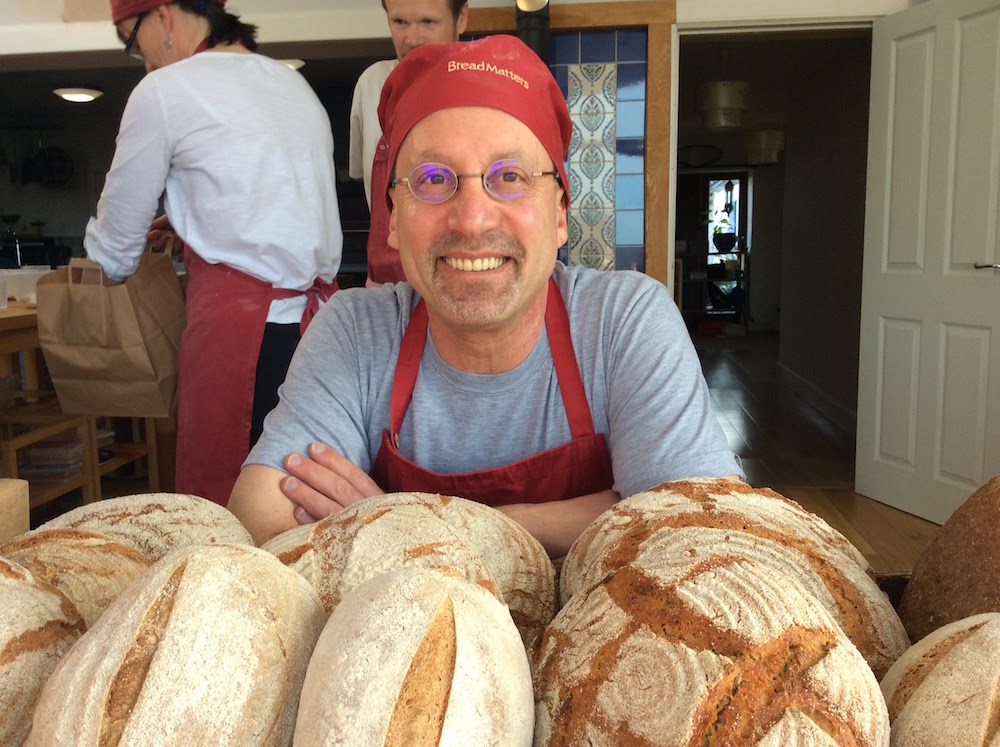
Allegheny Professor Shares His Fulbright Experience
Eric Pallant photographed his share of sheep, rustic stonewalls, and vintage waterwheels during the spring 2017 semester which he spent in the United Kingdom as part of the Fulbright educational exchange program. Pallant, the Christine Scott Nelson Professor of Environmental Sustainability and chair of the Department of Environmental Science at Allegheny College, also taught students about food, sustainability and green campus initiatives at Lancaster University. And he presented his lecture, “6000 Years of Bread,” at Gresham College in London.
This was Pallant’s second Fulbright experience. In 2001 he was awarded a Fulbright to teach and conduct research at Israel’s Arava Institute for Environmental Studies.

Having returned to campus in July from his latest Fulbright foray, the bread-baking professor shared a few observations about his semester overseas:
Is there any difference between Lancaster University students and those at Allegheny, and what might that difference be?
Because classes in the U.K. limit the amount of work that a professor can assign to a single homework per term students in the U.K. are much less swamped by weekly assignments. They have more time to read and some of them actually do the reading. While they may be very good readers, they are not nearly as practiced as Allegheny students are at applying what they learn to the kinds of real problems they will face after graduation.
What is something revolutionary you learned about making bread?
I used to think that great bread required only four ingredients: flour, water, salt, and leavening. The most important ingredient, however, is time. Giving dough a long time and being patient while it rises allows for complex flavors to develop that cannot be reproduced in bread that is rushed. Compare a homemade loaf to anything from the store, and you’ll understand what I mean. Slow rises are just as important for yeasted loaves as for sourdoughs, but sourdoughs, because they rely upon wild, rather than high-powered, commercial yeasts are inherently slower. In many ways the discovery of time as a fifth ingredient is a metaphor. Baking bread, especially slow bread made from sourdough is the antithesis and in my opinion the antidote to the high-speed, busy days most of us refer to as work and life.

You had your sourdough starters analyzed — what did you learn about them from the National Collection for Yeast Cultures?
Check out the photo that the NCYC’s scanning electron microscope took of my sourdough starters. When they ran DNA analysis on my different starters, we were a little surprised to discover that they were all dominated by the same species of yeast, Saccharomyces cerevisiae, the same species, by the way, used to make beer. NCYC did not have the resources to analyze the DNA of the bacteria so different species of bacteria might be living in my starters depending upon their origins.
What are the three most significant takeaways from your second Fulbright experience?
• Having time away from one’s ordinary life and job is a gift everyone should have.
• After attending an International conference in Manchester, England last spring I reached the conclusion that Allegheny should be preparing students to assist in meeting the United Nations Sustainable Development Goals 2030. I’ll be pushing that idea this upcoming year.
• After two terms at the University of Lancaster I am more convinced than ever that Allegheny’s liberal arts education is unsurpassed.

Did you host a European reunion of Allegheny alumni bread bakers?
Not exactly. But we did have a couple of wonderful meet-ups with the four Allegheny students studying at Lancaster this past spring. Check out the photo. The five of us are already scheming a get together for homemade Sticky-Toffee-Pudding, our favorite British dessert.